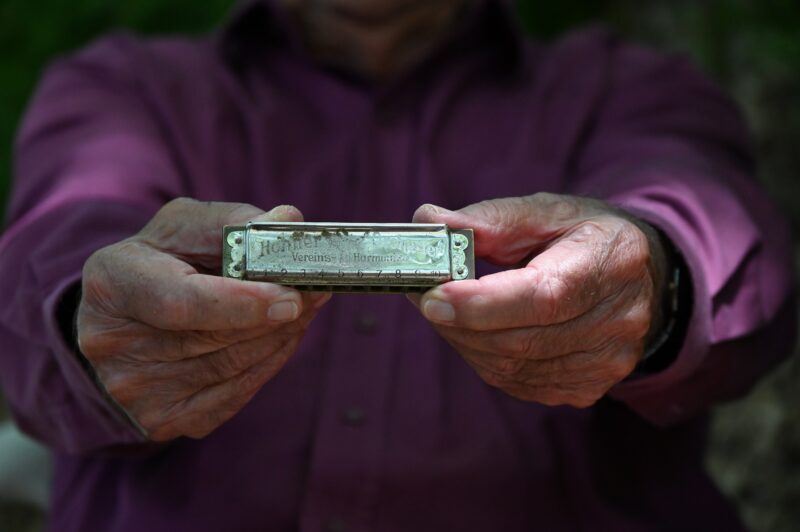
Tzvi Cohen
Holocaust survivor, Theresienstadt concentration camp.
“How Music saved my life…
I was born in Berlin, Germany in 1931 two years before Hitler and the Nazi Party rose to power so basically, I had no childhood at all. As a kid, I remember being bullied, harassed, and beaten just because I was Jewish. The Hitler Youth which was partially a paramilitary organization patrolled the streets of Berlin and if they saw Jews, they would harass them and usually would harshly beat them.
One day I was walking with my father in the street and the Hitler Youth spotted us because of the yellow badge we were forced to wear and I was severely whipped till bleeding. My father, who was my hero couldn’t really come to the rescue because if he would have helped me he would have been severely whipped as well.
So, he stood by and watched how his kid was severely beaten.
I knew that my father was deeply hurt for not being able to protect me so I never spoke about it with him. After that vicious attack, I decided not to leave my house again. I knew the next time I will be leaving my house, will only be when the Nazis decided to deport me to a concentration camp.
Growing up in Nazi Germany Jews were not allowed to have a telephone or to even buy a newspaper. The only connection to the outside world was through a radio that could pick up only German stations so I grew up listening to all the German marches the radio was playing to celebrate the German victories at the beginning of the war. They would play a lot ‘Lili Marleen’ – a song that the German army would march to when they entered an occupied city.
At home, I had a harmonica and my mother taught me how to play it so I knew pretty well how to play all the German marches the German radio was playing. Back then I didn’t really knew how music eventually would save my life. but it did.
On the 7th of May 1943, Two SS soldiers banged on our door and shouted:
RAUS! RAUS! RAUS! (out)
I was home all alone and I knew that if they would grab me and take me without my parents I would surely die and won’t survive the war. I was crying my heart out but started to gather a few things so I could go along with them.
I took soap, a toothbrush, and my harmonica. One of the SS soldiers saw my harmonica and shouted:
‘Play the harmonica! That’s an order!’
It was two months after the Germans lost the battle of Stalingrad so there were no happy marches playing on the radio so I played him a sad song called: ‘Once I Had a Friend’ that was played during that time. He stood up at attention and I saw he had tears in his eye. Something touched him deep inside and I realized I managed to strike a chord with him. When I finished playing he asked me to play another song and from all the German songs in the world he asked me to play… ‘Lili Marleen’! which luckily I was familiar with.
He asked me to keep on playing, and I, without thinking twice dared him and told him:
‘Under one condition! I want to call my parents!’
He was amazed by my bold move but agreed that I would call my parents.
As I mentioned before, In Nazi Germany, Jews were not allowed to have telephones in their houses so I went downstairs to the only Aryan German neighbor in our building who had a phone and called my father. In the phone conversation, my Dad told me that I have to keep playing until he and my mother will come back to our apartment so I played my harmonica for an hour and a half until they managed to come back.
In that hour and a half, those two SS soldiers transformed from ruthless soldiers into two gentlemen. They were singing, clapping, and treated me for the first time as a Human being.
When my parents arrived, we were all kindly escorted downstairs and the soldiers even helped us carry our luggage. They helped me to climb the truck and even greeted me goodbye. That truck took us on a path that brought us eventually to the Theresienstadt concentration camp, where I and my parents miraculously managed to survive.
Without the support of my parents in the Theresienstadt concentration camp I have no doubt in mind that I wouldn’t survive the Holocaust. It’s amazing how music saved my life.”
